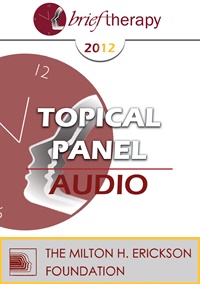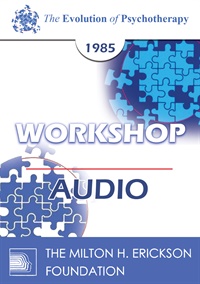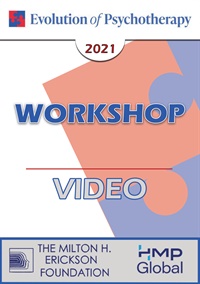- Average Rating:
- Not yet rated
- Topic Areas:
- Workshops | Couples Therapy | Psychodynamics | Deception | Infidelity | Betrayal
- Categories:
- Evolution of Psychotherapy | Evolution of Psychotherapy 2021 | Pioneers in Couples and Family Therapy
- Faculty:
- Ellyn Bader, PhD
- Course Levels:
- Master Degree or Higher in Health-Related Field
- Duration:
- 2 hours
- Format:
- Audio and Video
- Original Program Date:
- Dec 05, 2021
- Short Description:
- Bader presents strategies for managing infidelity crises in therapy, emphasizing direct engagement with conflict, addressing obsessive rumination constructively, and understanding the deeper meanings behind affairs. Using case examples, she highlights the importance of honesty, self-reflection, and confronting various types of lies to rebuild trust. Bader outlines therapeutic skills necessary for both partners—empowering the betrayed partner to find their voice, fostering self-esteem, and encouraging the betrayer to take accountability. She also addresses therapist neutrality, transparency, and navigating challenges like sexless marriages through honest and difficult conversations.
- Price:
- $59.00 - Base Price

- Average Rating:
- Not yet rated
- Topic Areas:
- Topical Panels | Therapist Development | Therapy Practice
- Categories:
- Brief Therapy Conference | Brief Therapy Conference 2012 | Pioneers in Couples and Family Therapy
- Faculty:
- Scott Miller, PhD | John C. Norcross, PhD | Wendel Ray, PhD | Michele Weiner-Davis, LCSW
- Duration:
- 56:46
- Format:
- Audio Only
- Original Program Date:
- Dec 07, 2012
- Short Description:
- This panel explores how therapist qualities—beyond modality or technique—shape clinical outcomes. Drawing from research and experience, panelists highlight presence, responsiveness, and self-awareness as central to effective practice. Emphasis is placed on reflective habits, therapist fit, and training models that support enduring therapeutic impact.
- Price:
- $15.00 - Base Price

- Average Rating:
- Not yet rated
- Topic Areas:
- Workshops | Existential Therapy | Psychotherapy | Research | Humanistic Therapy
- Categories:
- Evolution of Psychotherapy | Evolution of Psychotherapy 1985
- Faculty:
- James Bugental, PhD
- Duration:
- 2 Hours 45 Minutes
- Format:
- Audio Only
- Original Program Date:
- Dec 12, 1985
- Short Description:
- What actually creates life-changing therapy, rather than symptom management? This workshop maps the difference between adjustment and growth, showing how genuine concern, emotional presence, and a willingness to search inward open the door to deeper change. Through experiential exercises and a live clinical demonstration, it illustrates how expanded awareness emerges not from advice, but from helping clients rediscover capacities that were there all along.
- Price:
- $15.00 - Base Price


